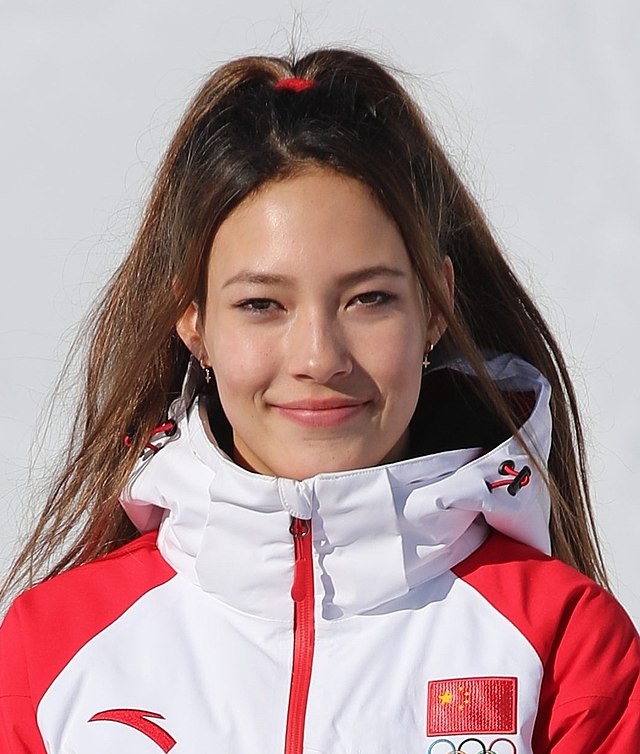China’s Olympic skiing champion Eileen Gu is facing significant backlash after a video surfaced showing her dancing closely with French swimmer Leon Marchand at a Paris nightclub. This controversy, which emerged as the Paris Olympics concluded, has intensified due to Marchand’s previous actions that angered Chinese netizens.
Intimate Interaction Sparks Speculation
In the video, Gu, who won two gold medals and a silver at the 2022 Beijing Winter Olympics, is seen interacting closely with Marchand. He had secured four golds and a bronze in Paris. At one point, Gu is seen holding a gold medal and making a kissing gesture. This action has led to speculation that the medal might belong to Marchand, further fueling rumors of a romantic connection between the two athletes.
Historical Tensions Resurface
The controversy ties back to an incident on August 2, when Marchand appeared to ignore a handshake request from Zhu Zhigen, the coach of Chinese bronze medalist Wang Shun, after winning the 200m individual medley. This incident was widely perceived by Chinese viewers as arrogant and disrespectful. Although Marchand later apologized, claiming he didn’t notice the coach’s gesture, the dissatisfaction lingered among many.
Social Media Backlash
Further complicating the Eileen Gu controversy, it was revealed that Gu had frequently interacted with Marchand on Instagram during the Olympics. Following the controversy, Gu deleted these interactions, leading to mixed reactions from Chinese social media users. Some critics viewed her actions as opportunistic, arguing that it reflected a utilitarian approach to personal and professional relationships. Sports commentator Li Pingkang criticized Gu on Weibo, suggesting that her quick withdrawal from Marchand’s circle revealed a self-serving nature.
Scrutiny Over Citizenship and Loyalty
Gu, born and raised in the U.S. by a Chinese mother but competing for China, has long faced scrutiny over her citizenship status. Speculation that she might hold dual citizenship—something not officially recognized under Chinese law—has fueled accusations that she may be using her national identity for personal and commercial gain, especially given the strained Sino-US relations.
Perceived Dual Loyalty
The Eileen Gu controversy has led to accusations that Gu is “two-faced,” balancing a pro-China public image with private relationships. These relationships seem inconsistent with her public stance. Chinese netizens have coined the term “Morning C, Evening A” to describe her perceived dual loyalty. They liken it to using Vitamin C in the morning and Vitamin A at night.
Impact on Endorsements
Gu’s active social media presence and self-promotion during the Olympics have further fueled criticism. Her attendance at press conferences for other medal winners also drew negative attention. Commentators have expressed frustration with her behavior, urging brands to reconsider their endorsements. They are suggesting a shift in focus to other athletes, like tennis player Zheng Qinwen.
Broader Implications
This backlash highlights the complex interplay between national identity, personal relationships, and public perception in global sports. In particular, the impact is evident in the age of social media. Eileen Gu is now at the center of a debate that goes beyond sports. This debate touches on issues of loyalty, identity, and the responsibilities of public figures.

